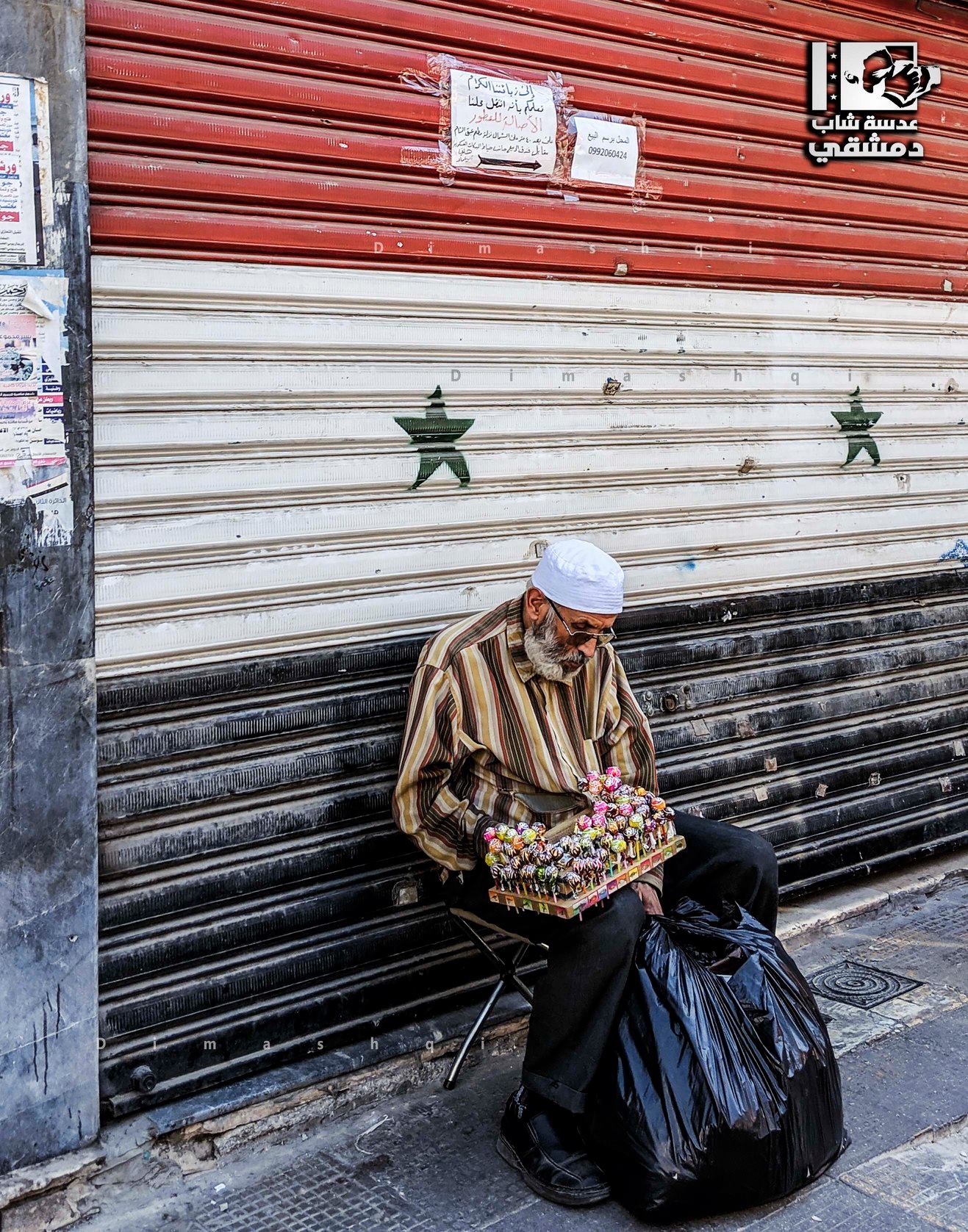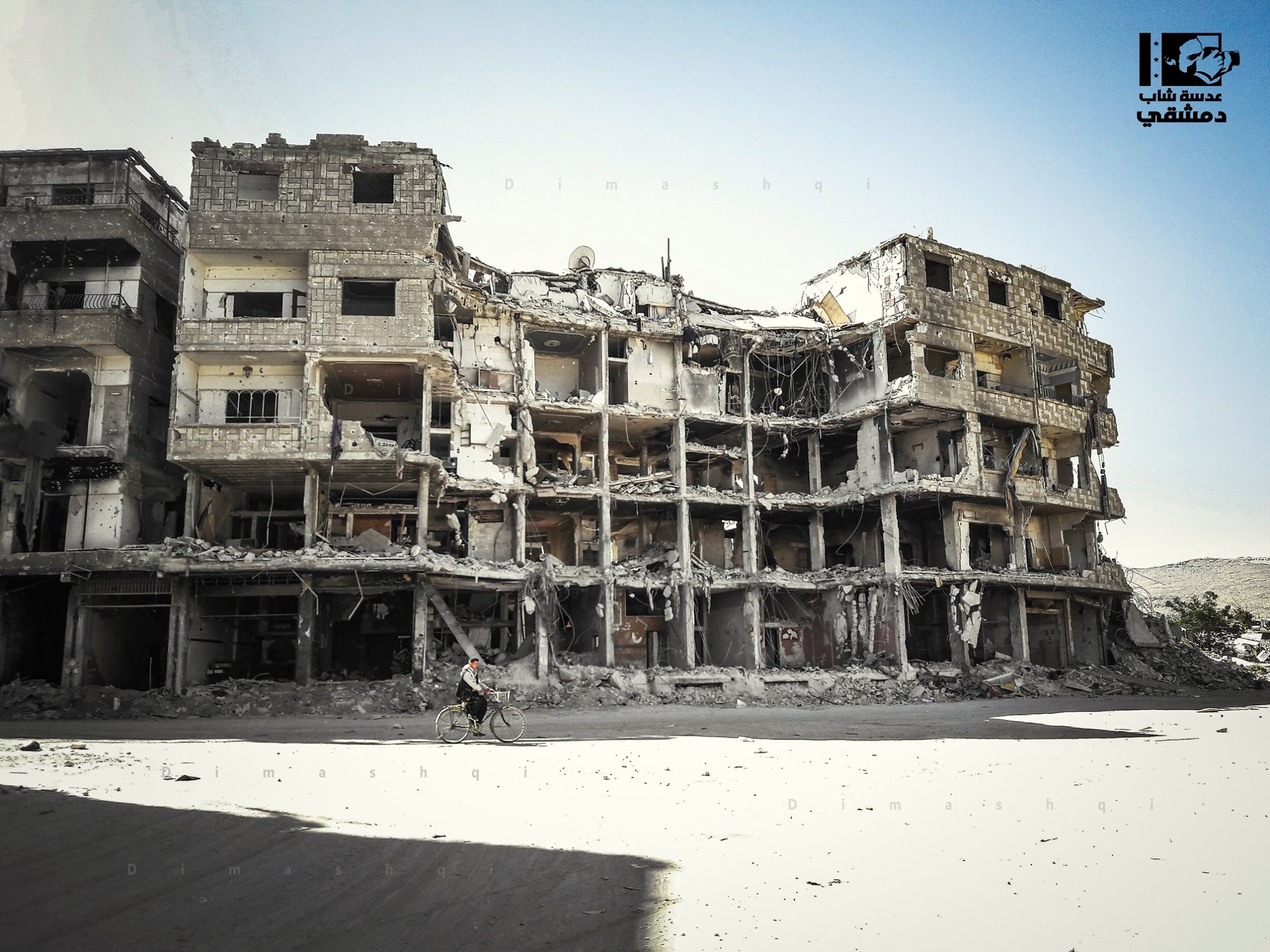In the city of Latakia, on Syria’s far northwestern coastline, Hala no longer runs her laundry machine, instead spending the days handwashing each load of clothing in unheated water. She’s also stopped using the refrigerator—electricity, when it does run, only stays on for a couple of hours each day. “Even then," she says, “it’s patchy.”
Meanwhile, the cost of everyday items is rising daily in the shops surrounding Hala’s apartment.
“We go to sleep with goods at one price, and wake up to even higher prices,” says Hala, who asked that only her first name be published for security reasons.
The 44-year-old, who works as a public sector employee, lives off her one salary, which is just 40,000 lira (just under $80) per month. Meanwhile Hala’s husband, an electrician by training, is now “virtually out of work.” There simply aren’t any jobs for him.
And with fuel in short supply, part of a broader economic freefall impacting regions across Syria, even cooking has become expensive, Hala says. She and her husband have turned to preparing just one meal per day, usually bulgur wheat. They’re hoping to make each gas canister last for at least two months.
“Meat and chicken are a dream nowadays,” she tells Syria Untold. “We just can’t afford them anymore.”
Outside their Latakia apartment, Hala says, deteriorating economic conditions are contributing to a visible rise in homelessness and poverty in their local neighbourhood.
The Syrian lira has hit record lows this month, reaching the equivalent of more than 1,000 lira to the dollar on the black market, much lower than the official rate of around 500 lira to the dollar. Fuel for heating and cooking is in desperately short supply while an ongoing currency crisis in neighboring Lebanon bodes further downturn.
“The situation is outside our control,” says Abdullah, a cloth trader in Latakia. “These days I’m buying goods at a certain price, while the next day they are increasing for me as a trader.”
He blames the lira’s collapse, “which in turn is causing an increase in everything from taxes, permissions and customs to workers’ wages and transport.”
“I have no optimism, to be honest.”
Conditions could soon grow worse. On December 20, US President Donald Trump signed into law a sweeping set of measures that, if enacted, would see entities involved in financial transactions with the Syrian government face tough economic sanctions. Some fear that could make the situation worse for ordinary Syrians who are already struggling with tough economic conditions across government-held areas of the country.
Framed in part as a response to the Syrian government’s human rights abuses, the bill also allows the US to “determine whether the Central Bank of Syria is a financial institution of primary money laundering concern,” ultimately giving President Trump the greenlight to sanction those providing “significant support to or [engaging] in a significant transaction with the Syrian government.”
Another aim of the bill is to target “reconstruction” efforts by the government that would see real estate development built over areas in which “civilians have been subject to forced displacement,” according to its text.
One such effort could be the now-infamous “Marota City” project, a government-backed plan to build rows of uniform skyscrapers and asphalt streets over the ruins of what was once the working-class Damascus suburb of Basateen a-Razi. A site of early protests against Assad, residents were later forced to vacate their homes to make way for the new plans. Several government-tied Syrian businessmen invested in the construction project are already under European Union sanctions announced last year. Similarly problematic projects are also planned elsewhere, including in Homs and Hama.
Caesar himself previously testified to US lawmakers in 2014, appearing in front of the House Foreign Affairs Committee disguised in a blue raincoat to protect his identity. In a televized interview three years later, he implored US officials to act on evidence of mass torture and other human rights abuses, and to “stop the machinery of death in Syria.”
Syria has been under US sanctions in some form for years, ostensibly for reasons such as “supporting terrorism” or comitting “serious human rights abuses,” according to the US Department of Treasury’s website.
However, the Caesar Act significantly expands the US’ power to place economic sanctions on Syria, raising questions over whether the measures included in it could impact civilians in its wake, or have any real impact on deterring human rights abuses.
“If we look at historical examples, sanctions have not been very successful,” says Joseph Daher, a Swiss-Syrian academic and activist. He cites UN-imposed sanctions on South Africa in the 1980s that were hailed as the beginning of the end of the country’s racist apartheid regime. In reality, he says, apartheid’s downfall was largely due to other political factors.
Still, rights groups praised the Caesar Act as punishment for the Syrian government’s mass atrocities over nine years of bloodshed. The Syrian American Council, along with other groups that had lobbied for the bill in recent years, applauded the measure for “holding perpetrators of atrocities in Syria accountable at long last.”

Humanitarian repercussions?
More than a month has gone by since the measures passed, and there has been little indication until now about how the US government will apply it in the future, and against who.
But even with the latest sanctions yet to be applied, Syria is already in the depths of an economic crisis. More than 80 percent of the country is estimated to be living below the poverty line, while residents tell Syria Untold that their ability to purchase basic goods is decreasing day by day.
Shams, a woman in Hama, said in recent days that she was simply “not sure” how she’d continue buying basics on her husband’s 40,000-lira salary. “Even without the additional sanctions, our condition is already tragic.”
And with the Caesar sanctions seemingly set to target the oil industry among other sectors, it remains unclear how exactly they will mitigate the impact on ordinary Syrians themselves.
“The bill is very unclear about this,” says Daher. “It doesn’t get into any specifics on how to alleviate the bad consequences on the people.”
One provision calls for sanctions against entities “knowingly [selling] or [providing] significant goods, services, technology, information, or other support that significantly facilitates the maintenance or expansion of the Government of Syria's domestic production of natural gas, petroleum, or petroleum products.” There is no apparent explanation in the text of how such a measure would prevent fuel shortages or other issues for people in need of gasoline for cooking or machinery.
Residents themselves are pessimistic, already feeling the effects after months of downturn.
In the southern province of Sweida, along the border with Jordan, simmering anger over poor economic conditions has already led to popular demonstrations in recent weeks. Dozens of people gathered in the provincial capital Sweida and other cities, demanding action.
A popular refrain, scrawled across protest signs in recent weeks has been: “We want to live.”
One Sweida resident, normally eager to chat by phone, was surprisingly silent in recent weeks as protests sprung up across the province. The reason was simple: there is poor electricity coverage, no WiFi, and few opportunities to charge her cell phone.
The demonstrations were a rare public show of popular discontent within a government-held area of the country.
And even as Damascus introduces rationing measures, such as a “smart card” system for gasoline launched last year, residents aren’t convinced. Shams, in Hama, called the card “a joke.”
“What will be the benefit?” she says. “It’s laughable.”
In Latakia, Hala has decided there is little else for her to do but take on a second job to support herself and her husband. Her $80 monthly salary is wearing thin.
“I’m learning how to cut hair and do cosmetics because my paycheck isn’t enough,” she explains, adding that she’s planning to open a home salon, as she is unable to pay the fees to rent out a space somewhere in her neighborhood. “But I want to at least try, so that I can get even a modest extra income.”
Otherwise, she says, “I’m hopeless for the future.”
“Is it possible for this nightmare to end?”





